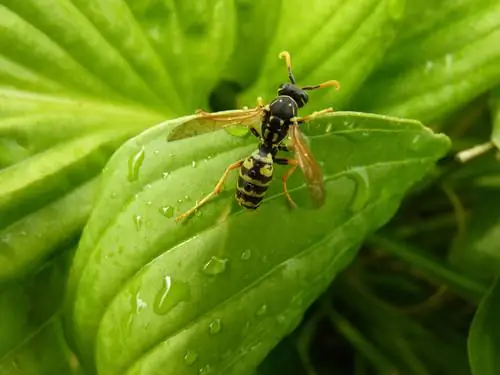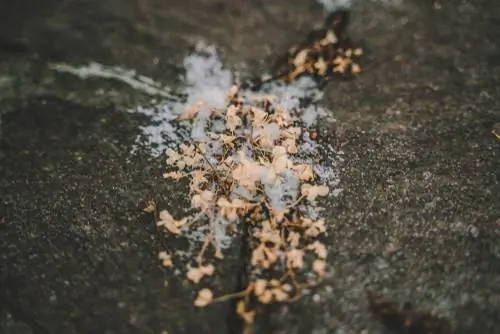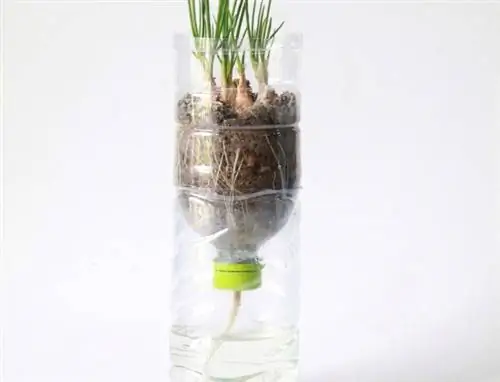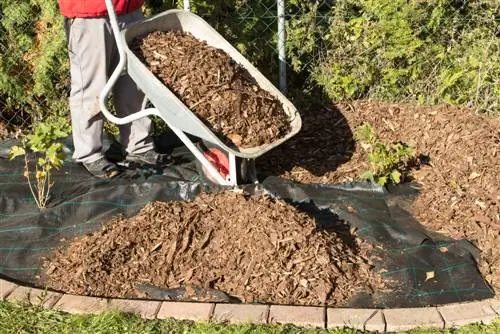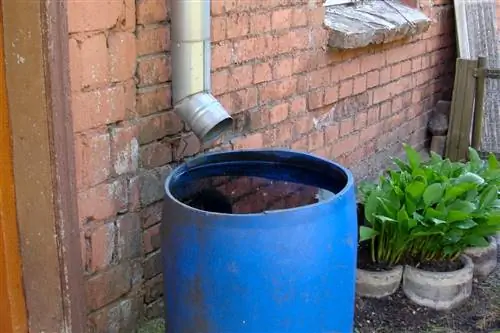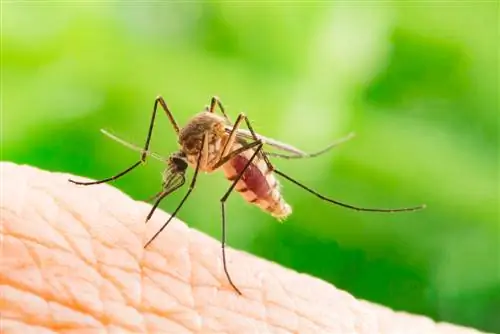- Author admin leonars@hobbygardeners.com.
- Public 2023-12-16 16:46.
- Last modified 2025-06-01 06:02.
Wasps prefer to be warm and dry. The sunnier the year, the more lush the wasp colonies tend to be. Given this background, water as a means of repellency is quite obvious. Practically, it can also be used in a very simple way.
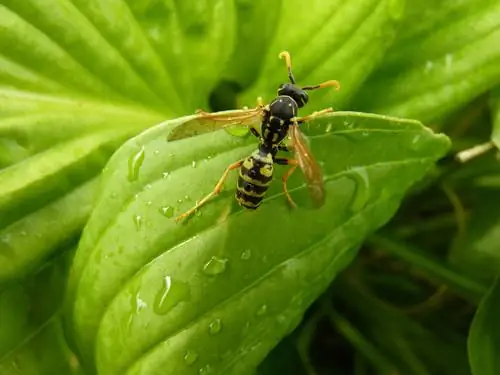
How can you get rid of wasps with water?
To repel wasps with water, you can use a water disperser to spray the insects and make them think it's raining. Make sure to use a clean disperser without cleaning agent residue so as not to harm the wasps.
Water as a wasp deterrent
Wasps only like water for drinking. Even more so, because the hard work in midsummer not only makes the insects very hungry, but also incredibly thirsty. Perhaps you have already seen dried-up wasps greedily slurping at small puddles of water on the terrace or at the edges of the swimming pool.
Water from above, especially in large quantities, is rather dangerous for them. In rainy weather you are unlikely to see a wasp flying around. The large, heavy raindrops from summer thunderstorms can really cause the flying insects to stumble.
In years with a lot of rain in the summer, entire wasp nests can be washed away in severe storms and most of the animals drown.
Apart from its thirst-quenching function, water poses a particular threat to wasps in the form of:
- large, splashing raindrops - danger to individual animals in flight
- larger amounts of water during storms - nests can be washed away
How to use water specifically for displacement
A simple and very practical way to drive away wasps with water is the good old water disperser. There is a sprayer like this in almost every household. By spraying on annoying wasps, you can make them think it's raining - but in order for the hard-nosed and clever animals to really run away and stay away, you have to spray properly.
Make sure that you use a clean disperser without any cleaning agent residue, which can seriously harm the wasps. Even less animal-friendly and, in some species, even punishable by law, is flooding earth nests with sugar water, which causes the wasps to stick together and kill them.

